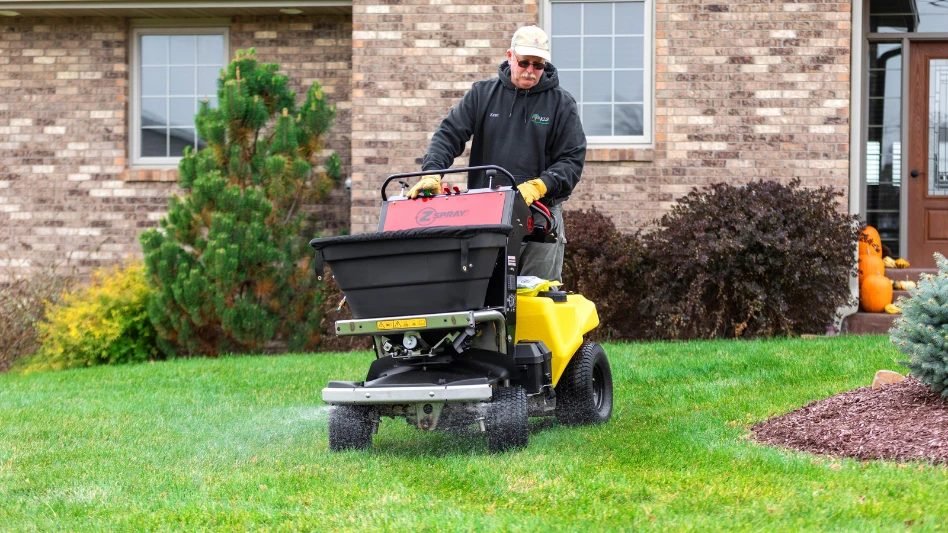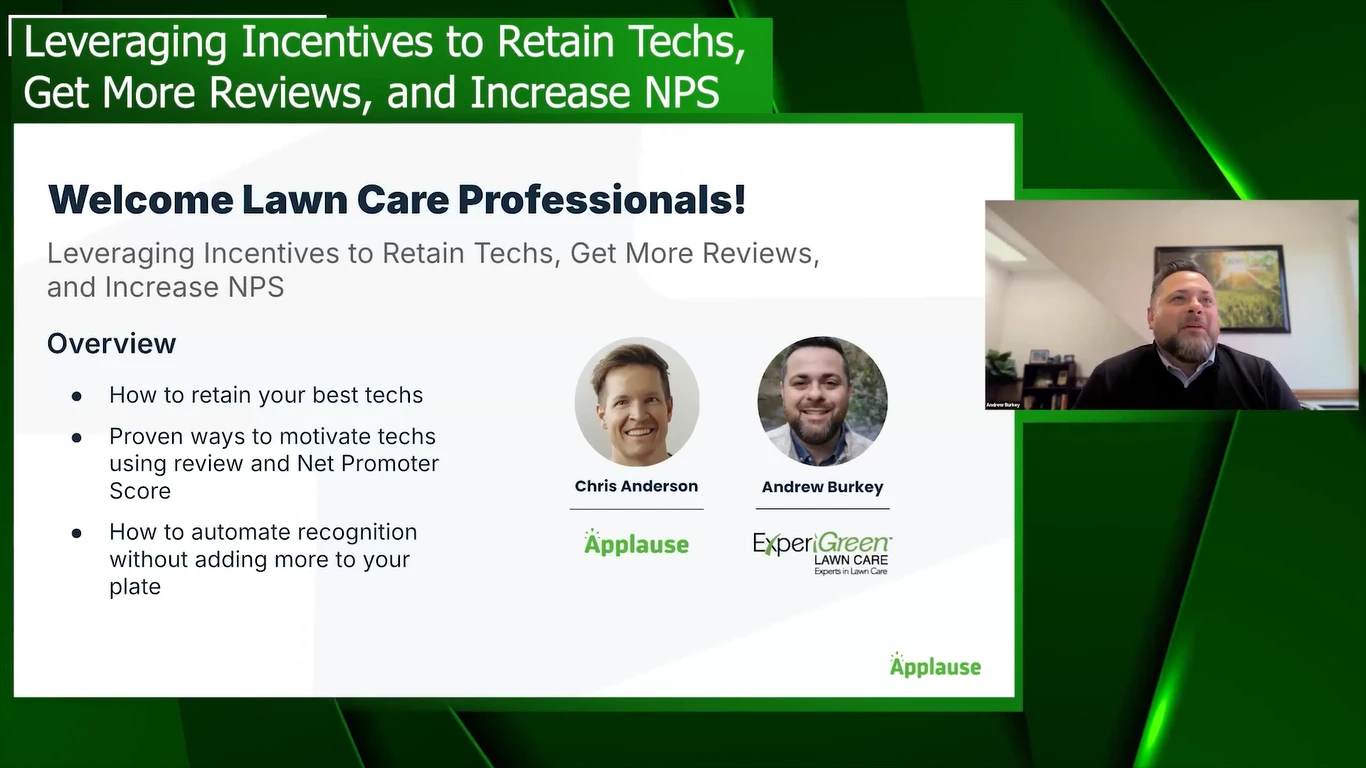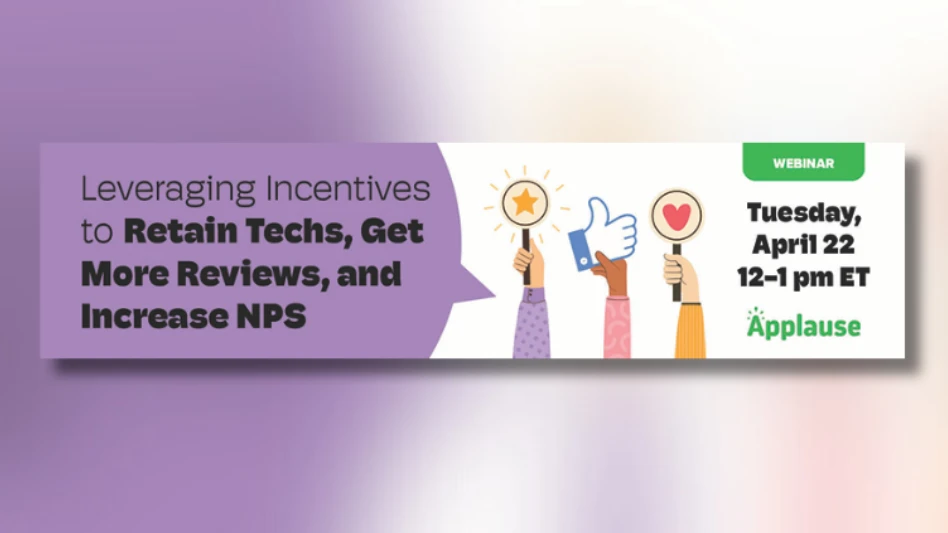
Kurt Kane just wrapped up his first year on the job leading TruGreen’s 15,000 employees as president and CEO.
Prior to joining TruGreen, he served as president, U.S., and chief commercial officer at The Wendy's Company. Before his time at Wendy’s, Kurt held senior management roles at Yum! Brands, where he led the execution of strategies to achieve growth at Yum!'s licensed brand Pizza Hut both in the U.S. and globally across 95 countries worldwide. In addition, Kane has led brand and business transformations at Frito Lay, Molson Coors Brewing Company, and Procter & Gamble.
He also has served as an Air Defense Artillery officer in the United States Army, earned a bachelor's degree from the United States Military Academy and received a master's degree from The University of Texas at Austin.
TruGreen ranked No. 3 on Lawn & Landscape's Top 100 list last year with over $1.5 billion in revenue.
Lawn & Landscape recently caught up with Kane where he talked about his first year in the job, the company's approach to M&A and more.
How would you describe your first year?
It's been fun. It's definitely been dynamic and it's been really a year of learning, but also a year of trying to help drive focus in the company so that we could simplify the things that we were really focused on so that we could be more effective at them. So that's really been what the first year has been about.
Can you give a couple examples of what you saw that needed to be simplified?
I think the biggest thing is, we were working on a number of important initiatives, but perhaps too many of those initiatives. A lot of those initiatives weren't necessarily tied to a specific strategy. So one of the first things our leadership team did when we all came together as I came in, was sit down and go through what our strategic platform was going look like.
We built our strategies out to have five core pillars that we're focused against and initiatives that we have are directly tied to those five core pillars. It was a good example of really trying to simplify back the core mission of the company, the strategic pillars that are going enable the growth that we believe we can achieve. And then driving that all the way through down to the branch level so that everybody's got visibility to that.
What was appealing about TruGreen?
There were a number of things. When I first was contacted about the opportunity, I never in a million years thought it was going to be a good fit, having spent my whole career in a different space. But the more I learned about it, the more I saw similarities rather than differences. Big, big thing: It's obviously very people driven. And if you love people, if you love having the opportunity to either lead people, coach people, or just engage with people, there's a few industries that I could see that benefit more from that and are more rewarding. So I think that was a big piece of it. And, transparently, growth. I looked at where TruGreen was as a company. I look at where we are as an industry and I look at how much upside there is from, from taking business out of do-it-yourself and bringing it into our world of do-it-for-me. I thought that was incredibly compelling.
It is similar in that it's a service industry job, and when you're at Wendy's, you have the cashiers working hourly jobs and you have guys on mowers working hourly jobs and then scaling up from there.
Yeah, exactly. So there's a lot more similarities than differences just because of that. But they're both very people-intensive businesses. And at the same point, there are also people that are very connected to their role. As a result, you've got people that are willing to roll up their sleeves, get into the work every day. If you're that kind of a person and you're that kind of a leader, that's a really good match. And that's the kind of way that I like to lead.
You were coming into a company with 15,000 employees. What did you do that first week?
Day one was just being visible. So if you ask me day, day one, week one, the first day I had to go to a board meeting and actually get into the job. Because it happened pretty quickly. Day two, I was out in a truck. I was doing a ride along with one of our specialists who had a lot of experience and spent the day with him. It was in Memphis, Tennessee, so right near our support center, but just a good opportunity to hear from him on his experience, what were things we were doing right, what were opportunities. He was very willing to share. He wasn't intimidated by me or my job. He was super honest throughout the day, which was great.
So, during the ride along, what were you seeing?
I saw that he cared a lot about what he was doing and wanted to do it right. I also saw a lot of opportunity to be more efficient if we could drive density. One of our core strategies, we call “Own the Neighborhood.” That came directly out of being on that truck that day, which is, what do we need to do so that we're not driving 15 minutes between stops?
But instead, we're actually creating route density and getting people clearly in a community all engaged with TruGreen. Instead of seeing our flag, a competitor's flag, a third competitor's flag across the street, how could we do what we need to do to earn that business so that we could make our specialist time a lot more efficient?
Did you fly into different branches that first week?
One thing that helped: We decided to have our top 300 leaders all come together not long after I started. I'll tell you one of the first things I did was actually go to a three-day franchise meeting where we have a small group of franchisees that are all very experienced. That was not something historically that the CEOs had spent a lot of time at. So I dedicated three days to be there to learn from them and to hear what they were doing, understand what their performance looked like, what was good, bad and different. The rest of my leadership team came. So, we were able to spend some dedicated time talking about the focus areas.
The first couple weeks were really just getting to know my core leadership group, dive in with the franchisees, understand that. And then, very quickly, we had our top 300 leaders all together in Nashville to roll out kind of our updated approach, our new strategic vision and start to build a rally cry around that. And then from there, I spent the next two months on the road going to all 14 of our regions, visiting with branches and spending time there as well. So, let's just say no shortage or frequent flyer miles, but at the same point, no better way to learn the business.
Did you have any misconceptions about this industry before you got the job and has that changed in the year you've been on?
It shouldn't have been a surprise (and maybe it's not, maybe it was more of a discovery), but I think just the level of professionalism that was dialed into the industry was probably something that I underestimated. You've got people who care a lot. What I found in TruGreen was people were super passionate about the work that they were doing. They were super interested in their career path and how they could grow. But it was incredibly professional and I was really impressed with the leaders that I met.
How active has TruGreen been in the mergers and acquisitions world, and how active would you like to be moving forward?
We've had periods where we're very active and periods when we're less active. For us, it just comes down to return on investment. At the end of the day, do we think we can take on somebody's business and do either a better job with it or drive growth because of it?
For me, if you ask what TruGreen is most focused on right now, it's organic growth. That doesn't mean we're not still interested in and for the right opportunities, but when you asked what are some of the things we simplified, we simplified and clarified the focus on retention. How can we do a great job with the customers that we have? And then really importantly, on top of it, we talk about net revenue growth. What do we do to be able to be world-class at selling? I think those two things go hand in hand. And so if we do those things right, we should be less reliant on M&A than we would otherwise. I think organic growth is the healthiest kind of growth that we can drive.
The author is editor of Lawn & Landscape.
Latest from Lawn & Landscape
- PERC helps debut propane direct-injection fuel system at ACT Expo 2025
- Retargeting Ads – A Secret Weapon for Growing Your Lawn Care Business
- Leading a growing company
- Project EverGreen launches Clean Air Calculator
- Rain Bird acquires smart lawn care company OtO from Toronto
- PBI-Gordon names Marvin as VP of research and development
- Mean Green rolls out Vanquish Autonomous mower
- Focal Pointe launches new podcast series





